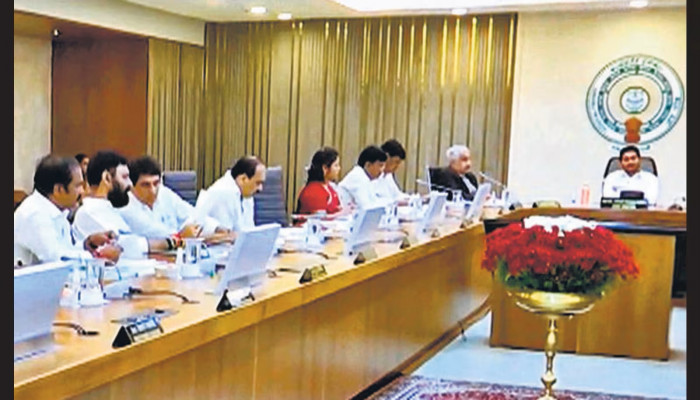Andhra Pradesh introduces scheme offering 50% of last-drawn salary as pension
- In Reports
- 04:34 PM, Jun 27, 2023
- Myind Staff
According to reports, the YS Jagan Mohan Reddy government in Andhra Pradesh has made the decision to replace the existing Contributory Pension Scheme (CPS) with the Guaranteed Pension Scheme (GPS).
This move has brought relief to state government employees who have been demanding the rollback of the CPS scheme for the past four years. As per the cabinet note shared among the employees, the GPS will entitle pensioners to receive 50% of their last drawn salary as pension, as opposed to the previous CPS that provided 20.3% of their basic salary.
The GPS is designed to resemble the old pension scheme (OPS) where employees receive 50% of their last drawn salary as a pension. The cabinet has additionally announced the grant of two installments of dearness allowance (DA) to pensioners, ensuring parity with working employees.
This decision aims to safeguard the financial well-being of pensioners by considering the impact of inflation on their livelihoods, as stated in the cabinet note.
The CPS, also known as the NPS, was introduced in 2004 for state government employees recruited after September 2004. Employees contribute 10% of their salary, while employers contribute up to 14%. A portion is invested in market-linked instruments. At retirement, a lump sum can be withdrawn, with 60% tax-free and the remaining 40% taxable. Contributions up to ₹1.50 lakh are tax-deductible under Section 80C of the Income Tax Act.
“We rejected both these options; and finally, the cabinet has come out with a midway solution – offering 50% of the last drawn salary as pension,” the state government employees’ association leader Bopparaju Venkateshwarlu said.
The government's exact contribution (10% or 14%) to the pension fund under the GPS is yet to be clarified and will be determined when the bill is introduced in the state assembly. The employee union expressed dissatisfaction with the lack of provision for pension revision in the GPS, unlike in the OPS, which is revised based on Pay Revision Commission recommendations every five years.
However, a finance department official highlighted the financial unsustainability of returning to the OPS due to increasing life spans and the burden it would impose on the state exchequer.
Image source: Hindustan times







Comments